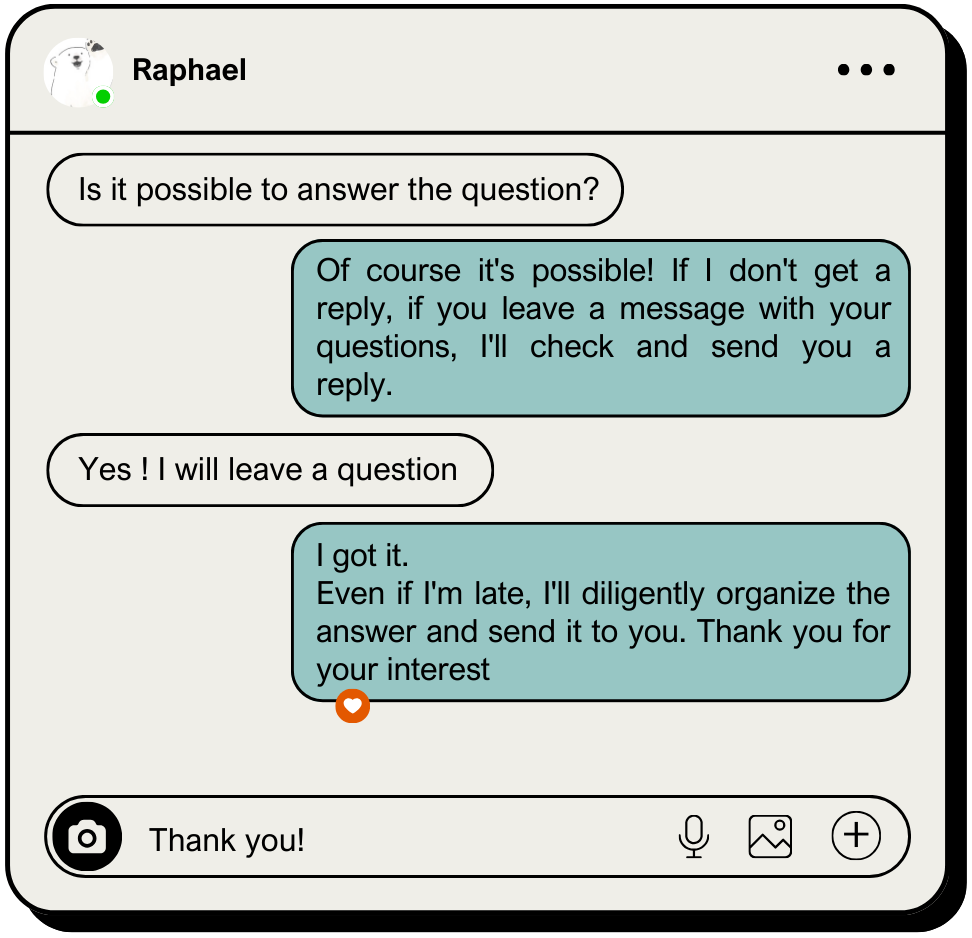In today’s fast-paced business environment, effective time management is crucial for success, particularly for those involved in Atomy’s direct marketing ventures. This article, authored by an experienced creator with a decade-long expertise in the health and direct marketing sector, provides ten indispensable tips tailored to boost productivity and time efficiency for Atomy members. These insights are aimed at a broad audience, including general customers interested in Atomy’s business model, personal health, and financial growth.
The article delves into detailed strategies and exemplifies best practices, ensuring the reader gains a comprehensive understanding of how to optimize their time management skills, thereby enhancing both their business acumen and personal well-being. Have you ever wondered how successful Atomy entrepreneurs manage their time so effectively? Time management is a crucial skill, especially in direct marketing ventures like Atomy. As a creator with a decade of experience in the health and direct marketing categories, the author brings a wealth of insights specifically designed for Atomy members. This article aims to provide valuable tips to not only help Atomy members manage their time better but also ensure personal health and productivity.
Table of Contents

Overview
Time management is a critical component for success in any business, but it becomes even more vital in direct marketing. Effective time management can lead to increased productivity, higher earnings, and improved mental well-being. This article will delve deep into ten essential tips for effective time management tailored for Atomy businesses, offering actionable advice that can transform how members allocate their time and resources.
Thesis Statement
This article will argue that mastering time management can significantly enhance performance in Atomy businesses. The key to balancing Atomy entrepreneurship with personal well-being lies in systematically applying strategies that prioritize tasks, optimize schedules, and maximize productivity. Keywords such as Atomy, time management, productivity, and direct marketing will be central to our discussion.
Historical Context
Direct marketing has evolved significantly over the last few decades. Initially, door-to-door sales and telemarketing were the primary methods. However, the advent of digital technology and social media has revolutionized the industry. Atomy, founded in 2009, is a company that exemplifies this shift. It marries traditional direct marketing with modern digital channels, enabling its members to reach a global audience.
Key Developments
- 2009: Atomy was established in South Korea.
- 2011: Expansion into international markets began.
- 2015: Atomy’s online platform integrated digital marketing tools.

Current Trends
Today, Atomy leverages social media, e-commerce, and mobile apps to streamline the marketing process. These tools make it easier for Atomy members to connect with potential customers but also necessitate advanced time management skills to juggle various responsibilities effectively.
Relevant Stats
- Digital marketing tools: 85% of Atomy members use social media for business activities.
- E-commerce growth: Atomy’s online sales platform has seen a growth of 30% year-on-year.
Key Concepts and Definitions
Time Management
Time management involves organizing and planning how to divide your time among specific activities effectively. Good time management enables individuals to work smarter, not harder.
Direct Marketing
Direct marketing is a type of advertising that allows businesses to communicate directly to the customer through a variety of media. It is highly measurable and allows for personalized marketing.
Dig Deeper: 10 Tips for Effective Time Management
1. Prioritize Your Tasks
To manage multiple responsibilities effectively, prioritize tasks based on their importance and deadlines. Utilize tools such as the Eisenhower Matrix, which divides tasks into four categories: urgent and important, important but not urgent, urgent but not important, and neither urgent nor important.
2. Use a Planner
A planner helps keep track of daily, weekly, and monthly goals. Digital planners like Google Calendar or physical planners can help you visualize your time and commitments better.
3. Set SMART Goals
Specific, Measurable, Achievable, Relevant, Time-bound goals make it easier to track progress and stay motivated. For instance, aim to increase your monthly sales by 20% by the end of the year.
| Goal Type | Example |
|---|---|
| Specific | Increase monthly sales by 20% |
| Measurable | Track sales figures every week |
| Achievable | Leverage digital marketing tools |
| Relevant | Align with overall business growth strategy |
| Time-bound | Achieve within one year |
4. Delegate Tasks
Identify tasks that can be delegated to team members or outsourced. This allows you to focus on tasks that require your expertise, thereby increasing efficiency.
5. Avoid Multitasking
Studies have shown that multitasking reduces productivity. Instead, focus on completing one task at a time with full concentration to enhance the quality of work and speed up completion.
6. Use Technology Wisely
There are numerous time management tools and apps like Trello, Asana, and Slack that can help you stay organized and on track. Choose tools that fit your specific needs and integrate them into your daily routine.
7. Create a Routine
A consistent daily routine can dramatically improve productivity. Allocate specific times for tasks such as checking emails, making calls, and attending meetings to create a structured workday.
8. Learn to Say No
It’s essential to know when to decline additional tasks that do not align with your goals or when your schedule is already full. This prevents overcommitment and burnout.
9. Take Breaks
Short breaks during work hours can rejuvenate your mind and body. Techniques like the Pomodoro Technique, which involves taking a 5-minute break after 25 minutes of focused work, can be particularly effective.
10. Review and Adjust
Regularly review your time management strategies to identify what works and what doesn’t. Adjust your plans accordingly to continue improving efficiency.

Example 1: Successful Time Management in Atomy
Atomy member Jane efficiently uses a digital planner and sets SMART goals. By planning her daily activities and focusing on one task at a time, she has increased her monthly productivity by 30%. Data from her planner shows that delegating tasks to team members freed up 20% of her time, which she then used for client follow-ups, leading to higher sales conversion.
Example 2: Ineffective Time Management’s Downfall
Conversely, John struggled with multitasking and lacked a structured routine. As a result, he missed deadlines and saw a 15% drop in productivity. Through time-tracking and subsequent adjustments, John found that single-tasking and using a planner significantly improved his efficiency, leading to better business outcomes.
Example 3: Video Case Study
A popular YouTube video from an elite Atomy member outlines how she uses time management apps to streamline her workflow. She highlights the importance of setting priorities and sticking to a routine. By following these practices, she successfully managed a growing customer base and team, showing a 25% increase in her business within six months.
Relevant Comparison Table
| Feature | Jane (Effective) | John (Ineffective) |
|---|---|---|
| Task Management | Uses planner, sets SMART goals | No planner, multitasks |
| Delegation | Effective | Ineffective |
| Time Tracking | Regularly | Seldom |
| Result | 30% productivity increase | 15% productivity decrease |
Compare Different Perspectives
There are varying schools of thought on time management. Some experts advocate for strict scheduling, while others suggest a more flexible approach. For instance, a rigid schedule might work for someone who thrives on routine but could stifle creativity for others. Conversely, a flexible schedule could benefit creative tasks but might lead to procrastination if not well-managed.
Evaluate Impact
Both perspectives have unique advantages and potential drawbacks. A balanced approach that incorporates both rigid and flexible elements can be highly effective. By understanding the needs and working styles of different team members, Atomy leaders can tailor time management strategies to maximize overall productivity.
Future Directions and Implications
Predictions
Time management in direct marketing will increasingly leverage AI and machine learning to automate routine tasks, allowing marketers to focus on strategic activities. Augmented reality (AR) and virtual reality (VR) could further revolutionize how Atomy members engage with their customers, saving time and enhancing interaction quality.
Implications
Adopting advanced time management strategies can make Atomy businesses more efficient and competitive. For individuals, effective time management leads to a more balanced lifestyle, reducing stress and enhancing well-being.
| Future Trend | Prediction | Implication |
|---|---|---|
| AI Integration | Automate routine tasks | Focus on strategic activities |
| AR/VR Use | Enhanced customer engagement | Better time efficiency and interaction quality |
Conclusion
Summarise
Effective time management is the cornerstone of success in Atomy businesses. From prioritizing tasks and using digital tools to setting SMART goals and taking regular breaks, these strategies can significantly enhance productivity and well-being.
Final Thoughts
Have you considered investing more time in refining your time management skills? Doing so can not only improve your professional performance but also positively impact your personal life. By following these tips, Atomy members can achieve a balanced and productive lifestyle.
Engage
Feel free to share your time management strategies in the comments below or explore additional resources on effective time management techniques tailored for direct marketing businesses.
Credible Sources
- Covey, Stephen R. The 7 Habits of Highly Effective People. Simon & Schuster, 1989.
- Goleman, Daniel. Emotional Intelligence: Why It Can Matter More Than IQ. Bantam Books, 1995.
- Tracy, Brian. Eat That Frog!: 21 Great Ways to Stop Procrastinating and Get More Done in Less Time. Berrett-Koehler Publishers, 2001.
- “Time Management Techniques for Entrepreneurs.” Entrepreneur, 2021, www.entrepreneur.com/article/348845.
- “The Eisenhower Matrix: What It Is and How to Use It.” Todoist, 2022, blog.todoist.com/eisenhower-matrix-guide.


